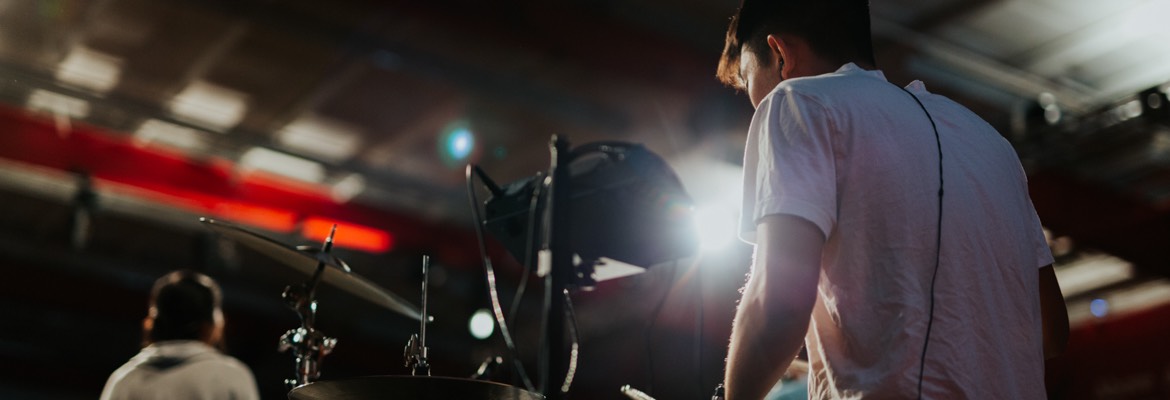Minor in Contemporary Worship Music

Overview
The contemporary worship music minor equips students who desire to serve the church on a volunteer or part-time basis through music ministry. A minor is offered upon completion of 22 credits in the required courses. An audition is required.
Courses
Below are the course requirements for this academic program. In addition to these program-specific requirements, all majors include Biola's traditional undergraduate core curriculum. For more program details, including a sample course sequence, visit Biola's academic catalog.
GPA Requirements
Students must maintain a 2.0 GPA in the minor and receive a minimum grade of C in each required music course.
Curriculum Requirements
For those students interested in a formal, cohesive music curriculum, the Contemporary Worship Music minor is intended to equip students who desire to serve the Church on a volunteer or part-time basis through music ministry. A minor is offered upon completion of 21-22 credits, at least 6 of which must be upper-division. An audition is required. Contact Conservatory Office for details.
| Code | Title | Credits |
|---|---|---|
| Program Courses | ||
| MUSC 145 | Applied Music 1 | 3 |
| MUSC 153 | Musicianship I 2 | 1 |
| MUSC 154 | Theory I 3 | 3 |
| MUSC 160 | Essential Technologies for Musicians I | 1 |
| MUSC 185 | Worship Foundations | 2 |
| MUSC 200 | Performing Arts Forum 4 | 2 |
| MUSC 445 | Applied Music 1 | 3 |
| MUSC 452 | Worship Arts Forum 4 | 0 |
| Electives | 4-5 | |
| Choose 2 of the following: | ||
| Music Appreciation | ||
| Introduction to Music Technology | ||
| Congregational Music | ||
| Spiritual Formation and Worship | ||
| The Calling, Character, Competencies of the Worship Leader | ||
| Ensemble Course | ||
| MUSC 013 | Worship and Popular Music Ensemble 4 | 2 |
| Total Credits | 21-22 | |
- 1
May take 1 or 2 credits at a time, for a total of 3 credits.
- 2
Students may take the Musicianship Placement Survey to potentially pass out of some or all of the Musicianship requirements. Students who do not take the survey will automatically be placed in MUSC 153 Musicianship I. Musicianship courses already taken at the college/university level will directly transfer for credit.
- 3
Students may take the Theory Placement Survey to potentially pass out of some or all of their Theory requirements. Students who do not take the survey will automatically be placed in MUSC 098 Introduction to Theory. The first two semesters of Written Theory courses already taken at the college/university level will directly transfer for credit.
- 4
Must be taken for two semesters.